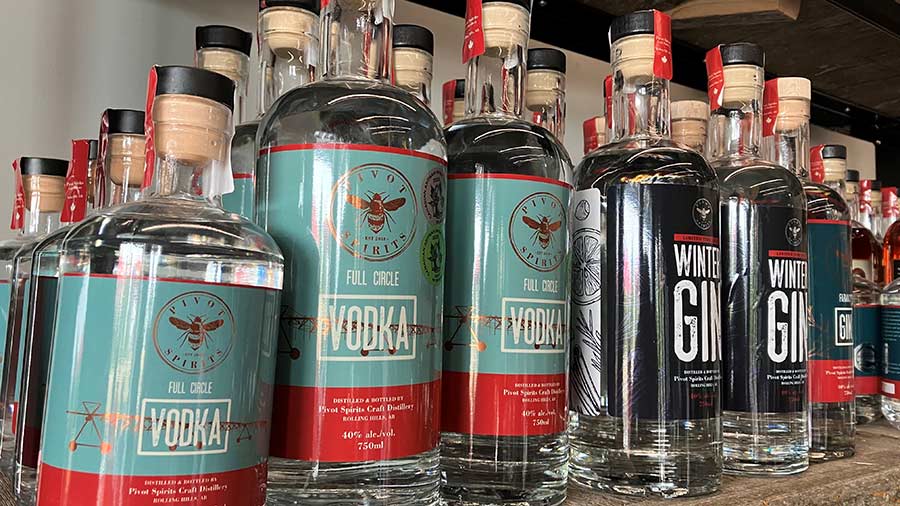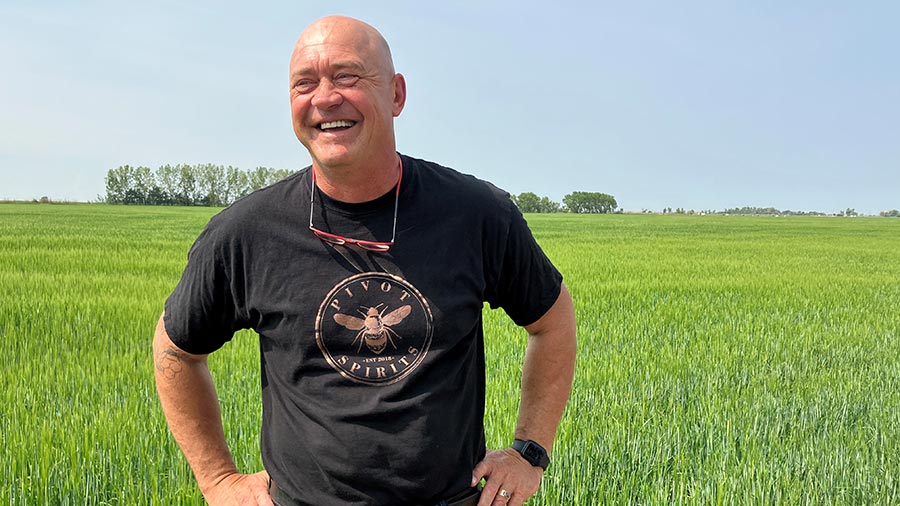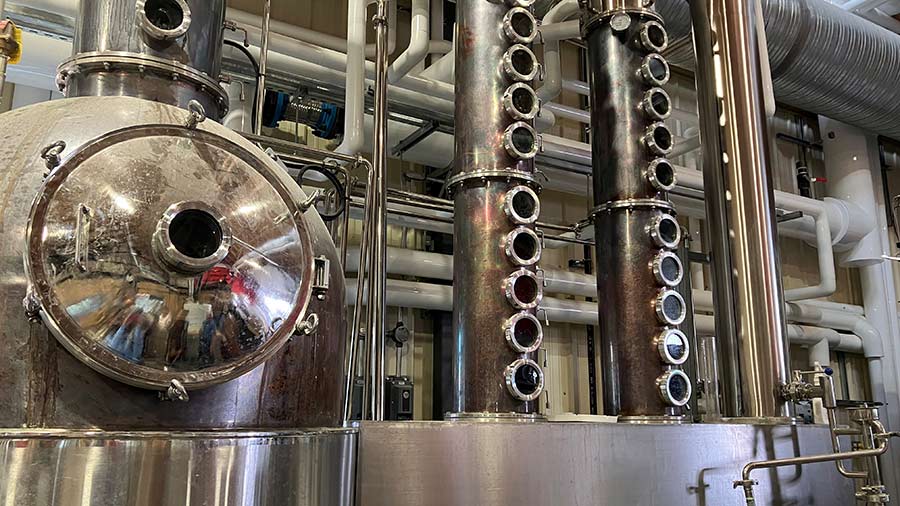Scotland trip inspires Canadian grower’s distillery
 © Emma Gillbard/MAG
© Emma Gillbard/MAG A trip to a Scottish distillery completely changed Canadian grain producer Lars Hirch’s life when he realised all he needed to produce whisky was barley, yeast and water.
At a time when Lars was losing the passion for farming, prices were poor and none of his children were interested in taking over the cattle and grain farm, the idea of transforming the business into a distillery seriously got him thinking.
“With all the ingredients to hand, I realised this would be a better way to add value to the barley that I was growing, as well as offering a much more fun and lucrative way to make a living,” he says.
See also: How Canadian farm became Alberta’s first craft malthouse
Lars found himself enrolling on a five-day distilling course and after 30 years of farming at Rolling Hills central Alberta, he began his distilling journey.
“I am surprised more grain farmers are not setting-up small-scale distillery diversifications as we have all the ingredients to make this work.
“Perhaps it is the different mindset or marketing challenges which are holding people back,” says Lars.
Pivot Spirits
What started out as a small diversification has since grown into an on-farm distillery, known as Pivot Spirits, which opened in March 2019.
With the help of selling a plot of land in order to invest in the brand- new distillery and bottling plant, Lars and his wife, Rachelle Fiset, now produce vodka, whisky and gin from spring wheat, barley, rye, triticale and spelt grown at the 150ha irrigated farm.
Spring barley grown for whisky and vodka yields on average 7t/ha – the equivalent of 740 bottles/ha at a profit of £8/bottle.
“We’re looking for plump kernels with lots of carbohydrates to maximise the fermentation of sugar into alcohol,” says Lars.
“Our fresh glacial water, which comes straight from the Bow river, is excellent for distilling because it is rich in minerals from the mountains, which give it a unique taste.”
Currently, 30ha of land is set aside for growing grains for the distillery, which Lars hopes to expand as demand for his spirits grows.

Lars Hirch © MAG/Emma Gillbard
Having no-tilled on the farm for 20 years, Lars doesn’t believe in a “one-size-fits-all farming system” and has now introduced a more minimum tillage system.
He particularly likes growing spring barley as it is very competitive and consequently low input.
“We apply just one herbicide and zero fungicides due to the dry cold climate here in Alberta. Irrigation is key for our crops. For the distillery grain crops, we supply them with 15in of irrigation water.”
He also applies liquid fertiliser through the irrigation pivot setup, while incorporating manure from his 120 head of cattle into the arable rotation. Spent grain from the distilling process is fed back to the cattle.
Lars and Rachelle also distil a gin and a rum-style spirit, made from locally grown sugar beet. They create unique flavour creations, such as a honey liqueur, encompassing berries and honey from nearby farms.
One of the biggest rewards in setting up Alberta’s only irrigated farm distillery is the chance to engage with the community.
“We sell spirits via our on-farm restaurant and shop, as well as self-distributing to local liquor stores and via our website. We also offer a distillery tour of the crops and irrigation systems.”

© MAG/Emma Gillbard
Distilling hints and tips from Canadian distiller Lars Hirch
- Grow varieties that do well on your farm, opting for different grains and varieties that provide a unique taste to differentiate your product
- Marketing can be challenging. As a small distiller, you are competing against big companies which can be a daunting task. Designing a good brand name and logo can help with this
- Ensure you enjoy connecting with the public and passing on a rural experience to spirit enthusiasts
